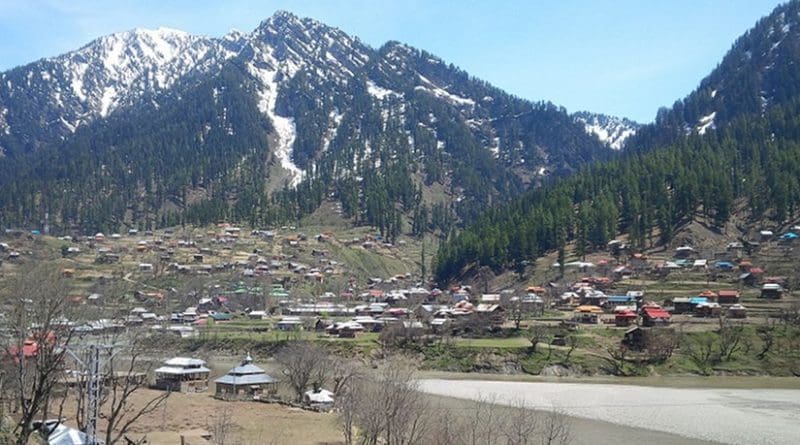‘Sit Tight And Do Nothing’: New Delhi’s Nero Policy Towards Kashmir
By IPCS
By D Suba Chandran
How does one explain New Delhi’s approach towards the ongoing violence in Kashmir valley? Though the PM and his Home Minister have been looking for a consensus and an elusive starting point, there have been clear formulations from the mainstream in J&K, on where New Delhi could begin to arrest the current round of violence. Omar Abdullah has demanded the removal of AFSPA, if not from the entire Kashmir valley, at least from select urban towns. Even many retired police officials agree to the same. Intellectuals from J&K have been asking for a debate on autonomy; Manmohan Singh himself has constituted a working group on this issue, which has given its recommendations.
What is New Delhi waiting for? There was an expectation, that there would be a special Eid package for J&K. Unfortunately, all that New Delhi could do was to convene the Cabinet Committee on Security (CCS), which could not reach an understanding, even on the AFSPA. Now, it has been decided that there will be an All Parties Meeting. If the government could not reach a consensus within the CCS, will it be able to generate one at the All Parties meeting? Or is that a strategy, towards shifting the blame? New Delhi may not be playing the lyre and enjoying the situation, as the legendary Nero did, but is sitting tight and doing nothing.
While many criticize New Delhi, that the central government does not have a long-term policy vis-à-vis J&K, they ignore, that not to have a policy, in itself, is a policy. So, don’t blame Manmohan Singh and P Chidmabaram, for not unveiling a policy towards Kashmir. That precisely, is their policy – not to have one.
Such a policy, though it seems bizarre, is not totally irrational, from New Delhi’s perspective. Many inside the government and even in the security establishment believe, that the violence in Kashmir valley will subside subsequently. True, violence in the last few years has become seasonal and cyclical in Kashmir valley. Amarnath land crisis, Shopian rape case, and other such events have increased the public anger in the valley, only to subside subsequently. So, the calculation perhaps today in New Delhi is that this round of violence will also subside. So sit tight. Do Nothing. Violence will come down automatically.
Perhaps, it will. Perhaps this round of violence will continue till the end of the Commonwealth Games in New Delhi. Perhaps even extend till Obama’s visit in November. After that it may subside. So, why pursue any strategy, that will result in being seen as a compromise or worse, leading to further violence?
Sounds irrationally rational. But does this augur well, in how New Delhi is viewed by the others? Forget about those who are throwing stones; how do the others in J&K and those outside see this? What kind of a message, is being projected? Don’t people in Kashmir valley and outside see this as an abdication of responsibility, to ensure order and governance? Don’t the security forces, especially the local police and the CRPF see this, as shifting the responsibility to them, while the political leadership remains frozen?
Perhaps, there is a conspiracy by the Hurriyat either on its own or with some tacit understanding with the PDP, as New Delhi may want to believe. The Hurriyat has been looking for an opportunity to revive its fortune. And Mehbooba Mufti cannot wait till the next elections to overthrow Omar Abdullah’s government. Hence, the present violence perhaps is the conspiracy of two opportunists.
Agreed. What should New Delhi do then, other than considering this as a conspiracy and cyclical problem? If indeed, it is both, then what measures could New Delhi pursue to prevent them from being cyclical? If in 2008, there was an overwhelming response to the elections in Kashmir valley, what measures could New Delhi adopt to convert the same into a permanent peace?
Unfortunately, New Delhi seems to believe that with the 2008 elections, problems in Kashmir Valley have been resolved; whatever happened or is happening after that, (Amarnath land crisis, Shopian rape, Muzaffarabad Chalo movement, and now the mass protests) are perhaps seen as an aberrations and temporary setbacks. Demands to initiate a debate on autonomy, AFSPA and demilitarization and working group reports were thrown in the dustbin.
The only positive outcome in the recent CCS meeting was the statement, that there is a governance deficit in J&K. True, but why blame only Omar? What has been the role of New Delhi in imposing accountability in J&K? Why is that the developmental funds, sanctioned by New Delhi never moved beyond Srinagar and Jammu? Why did the district administration and the Panchayati Raj institutions fail to deliver? New Delhi has to take the blame, in failing to impose accountability, therefore ensure good governance. Blaming Omar for the governance deficit is being hypocritical.
All is not lost. Even now, a beginning could be made with restarting the debate on the working group reports, autonomy and accountability. A “sit tight-do nothing-problem will subside on its own” approach does not augur well for a country, which is staking its claim at the international level. People will respect those States, which take initiative, share responsibility and are willing to fail. Fear of failure, should not prevent a State from taking decisions. At least those States which want to become a part of the UNSC.

